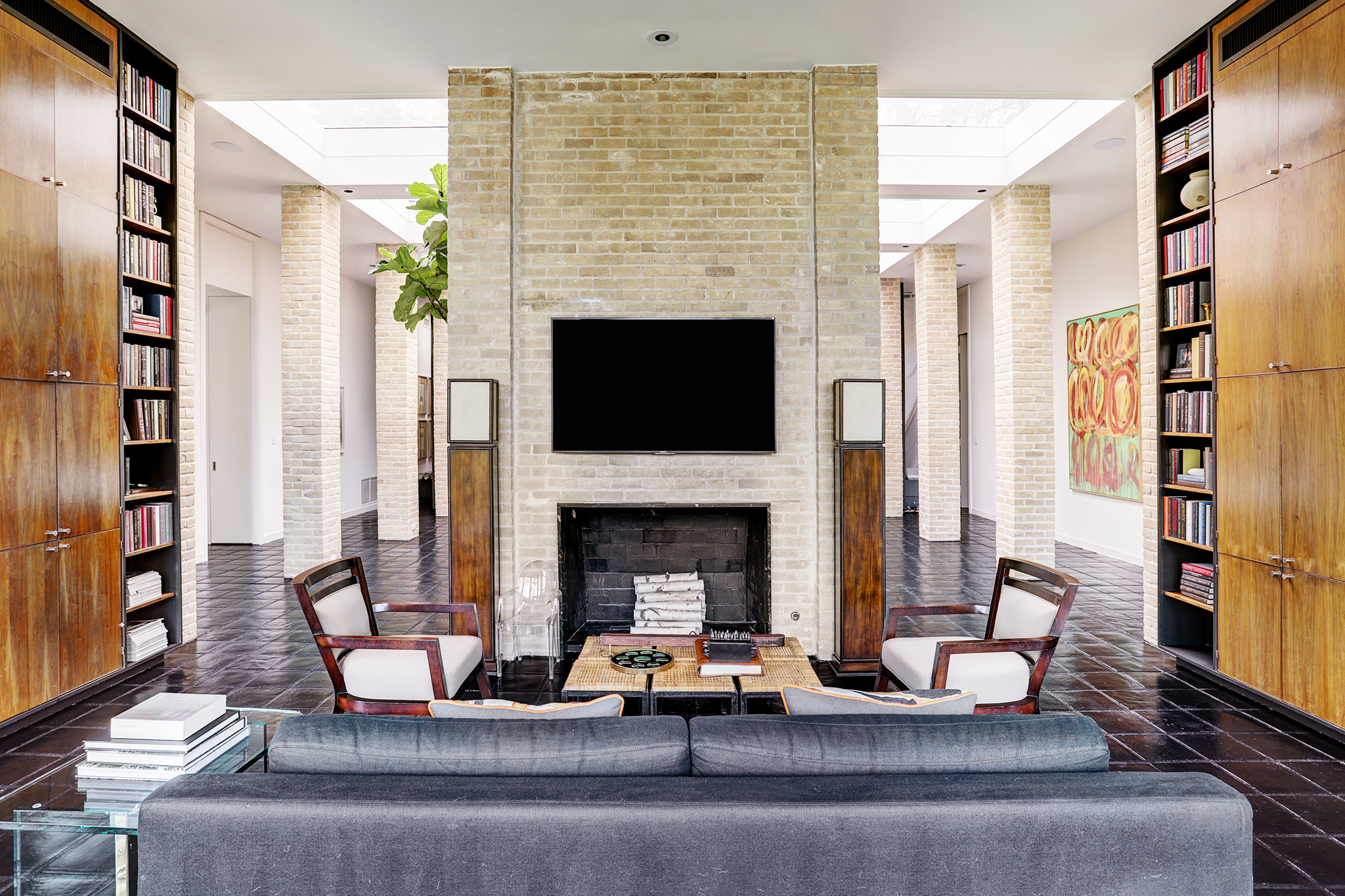
There are certain areas and features of our home that tend to become neglected when it comes to keeping them clean, and a fireplace is one of them. Traditional fireplaces may need regular upkeep, which is why learning how to clean them — the right way — is a must.
And a brick fireplace is definitely one of them. The fireplace is often the main focal point of the room and if you're lucky enough to have this feature in your home, then you'll want to ensure it's presentable for you and your guests. No one wants a dusty and smoky fireplace, after all.
Cleaning a fireplace can be a messy job to tackle. So, if you’re wondering how to clean it, follow our step-by-step guide below, which has been certified by the experts.
What You'll Need
If you're tackling your small living room fireplace, you'll need the right cleaning tools. No major cleaning job can be completed successfully without the right products. Here’s a breakdown of the key elements that you’ll need to clean your brick fireplace.
TOOLS
- Stiff-bristled brush, like this SetSail Scrub Brush from Amazon.
- Vacuum with hose attachment
- Bucket
- Sponge or cleaning clothes. We love Mr Siga Microfiber Cleaning Cloth from Amazon, now priced at $15.99.
- Cleaning solution. This Quick N Brite Fireplace Gel Cleaner should do the trick.
- Protective gloves and eye protection
- Drop cloths or Clear Plastic Sheeting from Amazon.
How to Clean a Brick Fireplace

It's time to clean your corner fireplace and bring it back to life — one brick at a time. Here's how to clean a fireplace, according to the experts.
Step 1: Vacuum
Before going in with cleaning products, it’s a good idea to go in with your vacuum to clear away any obvious dust or dirt. Ayten Nadeau, founder of I-TEN Designs says you should "begin by vacuuming the bricks to lift loose dirt and avoid grinding debris into every crack."
Step 2: Remove smaller debris
Once you’ve vacuumed up any obvious debris, go in a second time with a stiff-bristled brush to get off any smaller pieces of dirt that you may have missed. "Use a stiff-bristled brush to gently remove loose set from the bricks. Begin at the top of the fireplace and work downward to avoid redistributing dirt," explains Muffetta Krueger, founder of Muffetta Housekeeping.
Step 3: Apply a cleaning solution
"Choose the cleaning solution that works best for your needs. DIY methods include making a baking soda paste, which you should apply to the bricks and let it sit for 5–10 to minutes to loosen grime. You can also make a vinegar solution with vinegar and water for a natural, eco-friendly clean," says Muffetta.
If you think your brick fireplace needs a little bit more TLC then you may want to invest in a hardy brick cleaner.
Step 4: Scrub the bricks
Now, it’s time to tackle the stains and soot. "Use a stiff brush to scrub the bricks, applying extra pressure to heavily stained areas. Reapply your cleaning solution as needed for persistent grime and avoid wire brushes, as they can damage the surface of the bricks," says Muffetta.
Step 6: Rinse and wipe
After scrubbing your bricks, remove any cleaning residue to leave your bricks looking fresh. Use a clean sponge or cloth dipped in warm water to wipe down the bricks. Rinse and repeat as necessary until your brick fireplace is clean and free of residue.
When to Clean a Brick Fireplace

According to experts, your trendy fireplace will need to be cleaned regularly, especially if you use it a lot in the winter months. Muffetta has put together some useful guidelines below:
Visual cues: If you notice soot buildup or dark discoloration on the bricks, it’s time to clean.
After heavy use: Clean at the end of a burning season or after several fires.
Safety inspections: Include cleaning when conducting your annual chimney inspection.
FAQs
ARE THERE MATERIALS OR CLEANING PRODUCTS I SHOULD AVOID USING?
While cleaning your brick fireplace you should avoid using ammonia based cleaners. Even though they can be effective, they are corrosive so you won’t want to use them anywhere near your fireplace. Upon heating, ammonia can release toxic fumes that can be dangerous.
Muffetta says you may also want to avoid "wire brushes as they can scratch and damage brick surfaces. Harsh chemicals, such as bleach or ammonia and power washers because the high pressure water can erode the brick and mortar."







